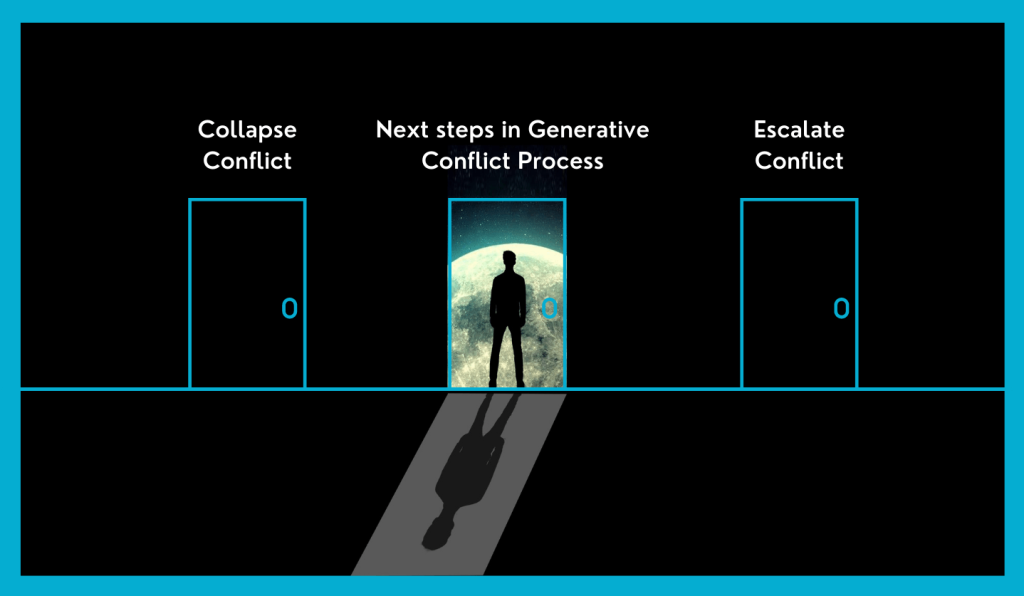Map Step 1 Step 2 Step 3 Step 4 Step 5 Step 6 Step 7
Step 4
Pick Your Battles
Step 4 on the Generative Conflict Map is about making discernments. Conflict takes energy, time and money. We must literally “pay” attention, at the expense of other tending and attending we could do instead. Rather than just letting conflicts get their own momentum, and feel compulsory, at this point in the process there can be a conscious choosing. What next, in this particular conflict? There are always dynamics of power and responsibility to navigate. Who will pay for it? How will we resource it with our limited time and energy? What can be gained? What is our capacity and commitment? What is the capacity and commitment of the other? We have already given this conflict a whole lot of our life blood, and precious time. We have already taken at least two hours with a resourced ally that need to be paid for. If we are going to take another step, what will it cost? Is it worth it?

A “Three Doors” exercise can be consciously engaged with. Imagine three doors, and open them all, to look at what happens:
Door # 1. Withdraw from conflict. We do nothing more to try to change this person or situation. We resource ourselves as needed to heal from injury experienced, and let the inflammation settle.
(Of course, withdrawing from a conflict may produce an escalation of conflict by the other person or people involved.)
Door # 2. Take the next steps in the process of generative conflict. We assume the financial burden, or get agreement from the person or institution we are in conflict with to do so. We offer the process of further change-making our creative energy, and the attention of our souls.
Door # 3. Escalate the conflict. Escalation looks different, for every specific conflict. Escalation to models outside the “Generative Conflict Map” may involve moving into a legal action, or initiating a conscious uncoupling. We might make a complaint to an authority or group who could assume the economic burden of further conflict. We might choose to reach for others similarly harmed, and take time to better understand how harm we have experienced in this conflict is related to systemic oppressions. Support of an affinity group is often necessary, so we can begin to feel empowerment in the dimensions of every conflict that are not personal.
We can choose the path that is right for us, in this particular conflict, at this time, while knowing that our choice to go through one door doesn’t mean the other doors are forever closed to us. We might choose to return to a different process at another time, when we are differently resourced.
